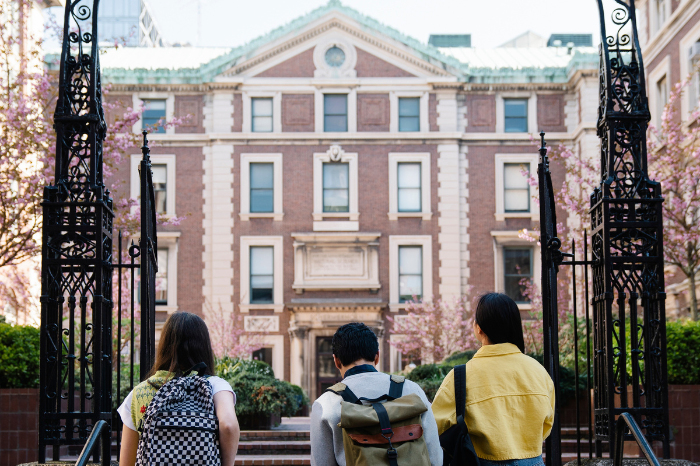I often imagine college essays as first-impression outfits. Sure, it’s nice to be stylish, but college admissions officers don’t need to see you in your wildest clothes, scarves streaming, sunglasses-tint-matching-the-color-of-your-pants à la pop-star Elton John (unless you are, in fact, Sir Elton John).
But if you look in your closet and see no wild outfits at all, that doesn’t mean you have nothing to wear.
As I listen to a student’s stories, I am asking Who are you? That’s why those first Ten Sentences that a student writes in our Hillside courses to gather the stories are so important. If something occupies your time, or becomes a memorable experience or something you truly love, it’s bound to be interesting when you tell it.
Let me correct that — when you tell it without the burden of What-You-Think-I-Want-To-Hear. An essay becomes interesting to me as a reader because it interests you as a writer.
If you look in your closet and see no wild outfits at all, that doesn’t mean you have nothing to wear.
Once, after reading a student’s first attempt at an essay about working in an auto shop — a draft that said little more about him than I love cars, so I got a summer job in an auto shop — I asked him what he did in the shop. I discovered, among other things, that he had handled the Instagram account for the business, taking the “before” and “after” photos of the cars. When I asked how that became his job, he told me he liked to photograph cars just for fun in Boston. “On weekends,” he said, “I take pictures of the exotic ones in Back Bay.”
This led to more questions and more specifics, and at some point, I summarized his description of himself, referring to him as a “photographer.” The look that crossed his face was one of surprise, but also recognition, as if he’d known all along that the role fit but he hadn’t taken a good look at it yet.
This is what a college wonders about: How do you see yourself? While my student never would have described himself as a “photographer” before, his new understanding of himself — an identity he internalized as he wrote — created valuable (and interesting!) perspectives on his story. It influenced his voice, which influenced his projection of authority. He had become, in fact, the author of that essay, and the only possible one.
Many college-app essay writers struggle in a search to find an experience outside of their everyday lives — a trip abroad, a life-or-death moment, something weighted with Vital Importance — that can be central to their story. For most writers, though, there are other compelling avenues that originate in daily interactions, in family life, or in a loved activity. Important moments are often in the outfits hiding in plain sight, the clothes you wear so often you might find them unremarkable.
After our conversation about the Instagram account, the auto-shop photographer’s essay included all sorts of details about what made that job his. Such ownership drives the stories that effectively reveal a person.
The moments that mean the most to you are often the ones closest to you, and are the ones your readers are looking for.
Valerie coached at Hillside from 2018-2023.




